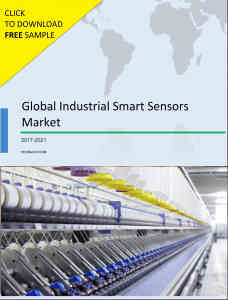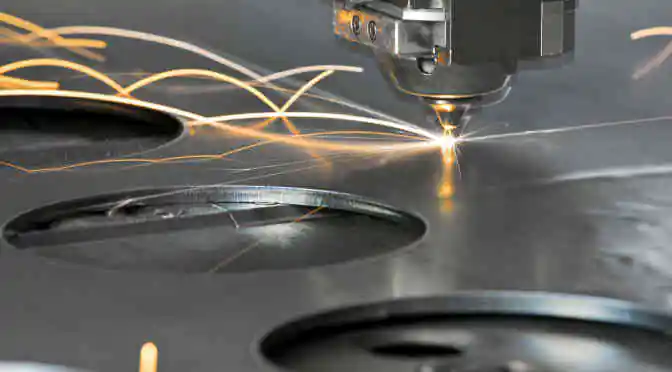With the rapid growth of connected technologies, the industrial world is transforming in a trend that conforms to a number of headlined names including the fourth industrial revolution, smart manufacturing, and Industrial Internet of Things (IIoT). In the process as well as discrete industries, intelligent field machines have now become the norm, thanks to the emergence of smart sensors, increasing productivity and massive industrial growth.
Sensor technology has been around in industries for over a decade but the emergence of Big Data coupled with manufacturers’ increased software proficiencies, pressures on inventory levels and lead times have led many businesses to procure sensor-enabled machinery. Smart sensor technology can significantly turn our dumb work-horse industrial machinery into intelligent devices that connect to smart networks along the entire value chain.
Smart sensors for industrial applications : Improving predictability to aid profitability
For any manufacturer today, the significant step to progress would be capturing contextual data, delivering more predictive diagnostics and leveraging data across the manufacturing operations. In this light, smart sensing technology is bringing deeper insight into the health of industrial devices to aid current as well as future generations of smart machines.
 Smart sensor technologies are undeniably the front line in the IIoT today. IoT sensors armed with self-diagnostics and digital network proficiency are addressing a number of process and discrete industry requirements ranging from reducing maintenance to increasing overall equipment effectiveness (OEE) as well as digitally capturing the knowledge of skilled workforce.
Smart sensor technologies are undeniably the front line in the IIoT today. IoT sensors armed with self-diagnostics and digital network proficiency are addressing a number of process and discrete industry requirements ranging from reducing maintenance to increasing overall equipment effectiveness (OEE) as well as digitally capturing the knowledge of skilled workforce.
Plus, smart industrial sensors are ruggedized, are suitable for an industrial setup and are manufactured to withstand extreme temperatures, pressures, and vibrations. Consequently, these solutions are leading to a new generation of smart machines alongside representing a crucial step in the journey of IoT-enabled operational excellence.
Challenges galore, growth is consistent too
Despite challenges such as price surge because of fiber optics integration with industrial smart sensors, technological challenges, and compliance with different regulations, the market for industrial smart sensors is positively driven by factors such as growing adoption of SoC technology, the emergence of Industries 4.0, and the implementation of Industrial Internet of Things.
How are smart sensors realizing the Industry 4.0 vision?
Industry 4.0 has been a hot topic from the time when it was first introduced, and which primarily focuses on the automation of factories and the implementation of IoT in industries. It enables industrial advancements with the help of advanced computing, analytics, low-cost sensing, and new levels of connectivity enabled through the Internet. Some of the technologies supporting this revolution are cloud services, big data analytics, and pervasive, intelligent, sensing technologies.
The significant benefits of using intelligent sensing technology in industries are accuracy and consistency, which enable functions such as picking, placing, labeling, and printing to be performed at higher production rates, leading to low wastage, minimal down time, and better-quality control. These capabilities have made industrial smart sensors capable of more complex data processing enabled within the sensor unit while being independent of PLC.
Given these abilities, it is quite certain that the manufacturing industry majorly depends on smart sensor devices in ensuring the accuracy and efficiency of the source data, and eventually will hinge on the reliability of the information for the process chain. Though intelligent sensors are indispensable in Industry 4.0, there still exists obstacles for sensors to be widely adopted in the production environment.
These days, two trends are extremely popular in researching and developing sensors. First is developing integrated sensors, which is inclined to supplying an advanced level of information by directly estimating the sensed data. Second is the augmentation of multi-sensor systems, which allows huge quantities of data to be acquired in the system.
Rising adoption of System-on-Chip in industrial smart sensors
With the integration of microprocessors and other electronic components, industrial smart sensors are proficient in performing significant functions such as data conversion, bi-directional communication, and taking decisions in an industrial set up. Nevertheless, these microprocessors are empowered with the IIoT-enabled chipset for faster communication between the sensor devices and the control systems.
There have been several developments in these chipsets, and one of it is the integration of intelligent sensors and other transduction essentials composed in one silicon chip; the broad system is called System-on-Chip ( SoC). Some of the advantages of using System-on-Chip enabled industrial smart sensors include reduced costs of bulk connectors and cables, better signal to noise ratio, costs improvement, self-calibration, system reliability and multi-sensing.
Implementation of IIoT : Driving a new era of automation
The Industrial Internet of Things (IIoT) could not have existed without intelligent sensors, and the growing adoption of smart technology is already changing the way manufacturers implement the IoT. Smart sensing technologies are also bringing more connectivity and analytics to the supply chain.
Smart and intelligent sensors are the indispensable enablers of the industrial IoT. They identify things, trace them and determine their environmental situations, all of which have significant implications for the manufacturing and supply chain. Smart sensing technology is mainly useful in warehouses as they can keep track of humidity and temperature, log data for past records and quality management, or be adopted as triggers for alarms or process management.
Overall, the market for smart sensors is set for rapid growth, and the emergence of intelligent sensor technology is central to enabling increased automation.
If you are still unsure of the industry’s leanings and are looking for more in-depth insights on this revolutionary market, download our complete market research report as compiled by industry experts at Technavio. Click on the links listed herein and download a FREE sample.



